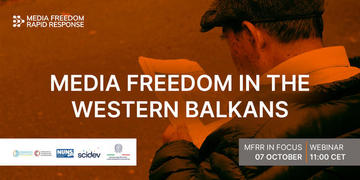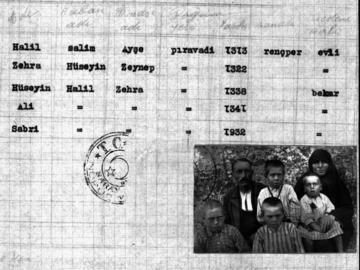Media Freedom in the Western Balkans: Challenges in the Framework of EU Enlargement
As political interference and threats to journalists grow, the EU's new legislative measures, including the anti-SLAPP directive and the European Media Freedom Act, aim to safeguard press freedom in member and candidate countries. A recent webinar highlighted the struggle for media independence in Albania and Serbia amid their EU accession efforts
Cohesion reform and Enlargement policy
The Commission will submit a proposal for the next EU Multiannual Financial Framework (MFF) period starting in 2028 by the beginning of July 2025. The webinar focuses on the current debate in preparation for the MFF 2028-2034 in connection with the enlargement process.
Balkan migrants in Turkey: Naturalization, identifications, and associations
In the new episode of the podcast The Southeast passage, Elif Becan discusses the integration of Muslim migrants from the Balkans into the Turkish Republic during the interwar period
 Romania, living on the fringe
Romania, living on the fringe
Valentin and Mirela are a Romanian couple, aged 57 and 52. They live in Podu Văleni, a small village about 40 km from Bucharest. Theirs is one of those almost invisible stories, on the fringes of society. Valentin used to work as a mechanic and custodian, before a second stroke forced him to retire. Mirela suffers from mental problems and, like her partner, from epilepsy. They receive about 1,780 lei each per month (about 350 euro) from the Romanian state, which they use for medicines, electricity and food.
 Georgian opposition calls for boycott of Parliament as thousands rally in Tbilisi against election outcome
Georgian opposition calls for boycott of Parliament as thousands rally in Tbilisi against election outcome
After the disputed victory of Georgian Dream in Georgia's parliamentary elections, the pro-European opposition is seeking international support to call for a new vote and is mobilizing public protests, though it seems to be aiming for a non-violent parliamentary boycott. Photo and text by Onnik James Krikorian.
 Georgia: Tbilisoba 2024
Georgia: Tbilisoba 2024
Since 1979, Tbilisi has held the Tbilisoba Festival, an autumn celebration that has become a long-standing tradition. A joyful carnival, with street performances, music and dance, culinary specialties and much more. This year, Tbilisoba offered family fun despite the decline in attendance and size. Photo and text by Onnik James Krikorian, from the Festival held on October 5-6, 2024
 The futuristic Rijeka City Library
The futuristic Rijeka City Library
On 21 December 2023, the new Rijeka City Library was inaugurated in the so-called "T-Palace" in the former Benčić industrial complex. The modern structure, co-financed with European funds, is an integral part of a district that has become an important cultural hub.
Photos by Nicole Corritore
 Trains that (don't) connect the EU with the Western Balkans
Trains that (don't) connect the EU with the Western Balkans
Between May and July 2024, Jon Worth, an activist calling for better rail transport in Europe, spent about a month documenting the state of cross-border rail connections in south-eastern Europe, boarding dozens of trains, mostly local, and also crossing or visiting a number of cross-border sections that currently have no active rail services.
 Neighbours
Neighbours
Milica and Silvana are neighbours. Milica is Serbian, Silvana is Croatian. They live in Krupa, a small village of about 50 inhabitants in the hinterland of Zadar. We are in the so-called Krajina, the region that in 1991 proclaimed itself a “republic” and was reconquered by Croatia in 1995, causing the exodus of over 200,000 Serbs. Today this area, far from Zagreb and partly depopulated, is among the poorest in the country.
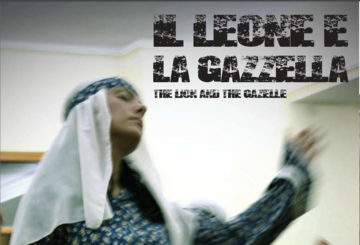
Nor Sunnies nor Shiites, heterodox Muslims of nomadic origins and mystical traditions: Turkish Alevis are estimated at around 10-15 millions against a total population of 70 millions. Enthusiastic supporters of Atatürk laicism, they were always seen with suspicion by the central authorities and the majority of the population. "The Lion and the Gazelle", a documentary film by OBC
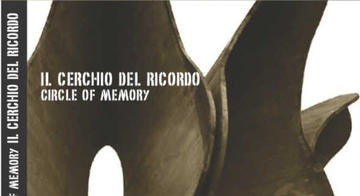
The unique experience of a group of architects and sculptors in 1960s and 1970s Yugoslavia, introducing new ways to remember World War II and the victory upon Nazism and Fascism. The curse of history at the beginning of the 90s, with the nationalist forces using those same memories to manipulate the different national communities and lead the country into war. A journey into European memory of the 20th century, the century that started and ended in Sarajevo
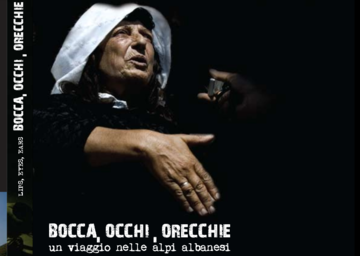
Michael is on the tracks of the Indo-European language, Gianni is an Arbëresh and teaches Albanian at the University of Calabria, Monica was the first researcher in Italy to obtain a PhD in Albanology. A group of linguists travelling into the majestic beauty of Albanian mountains in a quest for lost words and languages. “Lips, eyes, ears” traces a portrait of an unusual job, introducing a special perspective on today's Albania, its culture, and its landscape
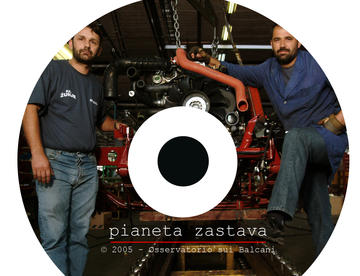
It was called Crvena Zastava, Red Flag, and it was the biggest car producer in the Balkans. Following the fall of Yugoslavia, it entered a devastating crisis, reaching its peak during the Nato bombings of 1999. While the factory lost its workers, the city of Kragujevac became one of the main destination for Kosovo refugees. A story on the violent transition from socialism to the market economy. Zastava Planet has been produced thanks to funding from the Autonomous Province of Trento
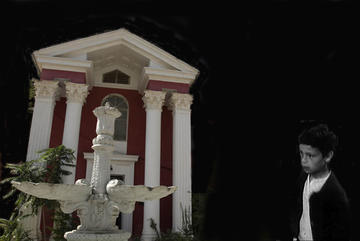
Artan Puto, born in 1969, is a university professor; however, people in the streets still recognize him as the star ofTomka and his friends, one of the most popular children’s movies of Albanian cinema. An unusual point of view on today’s Albania and on the changes which took place in this country. A documentary film by Micol Cossali and Davide Sighele, now available in streaming
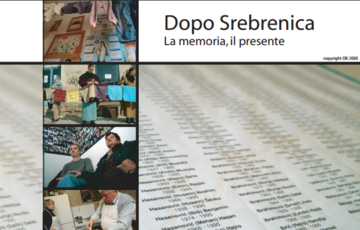
Ten years after the massacre of July 1995, this is the story of the town that has become a symbol of ethnic cleansing and racist violence in Europe. The documentary brings the viewer from Tuzla - where women fight for the investigation of their loved ones' disappearance, through Potočari - former headquarter of international peace forces, and all the way to Srebrenica. Going back and forth between present times, history, and memory, parallel narratives unfold, surrounded by a sense of alienation, in the heart of a town where the conflict does not yet seem to have found an end. “After Srebrenica” was filmed thanks to the support of the Autonomous Province of Trento.

